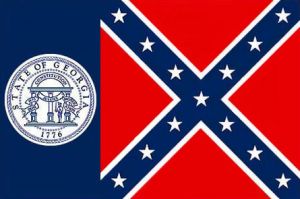 The Georgia Secession Convention adopts a new state constitution (to be ratified by voters in July) and then adjourns. Article II, Section VII of the Constitution deals with the issue of slavery:
The Georgia Secession Convention adopts a new state constitution (to be ratified by voters in July) and then adjourns. Article II, Section VII of the Constitution deals with the issue of slavery:
1. The importation or introduction of negroes from any foreign country, other than the slave-holding States or Territories of the United States of America, is forever prohibited.
2. The General Assembly may prohibit the introduction of negroes from any State; but they shall have no power to prevent immigrants from bringing their slaves with them.
3. The General Assembly shall have no power to pass laws for the emancipation of slaves.
4. Any person who shall maliciously kill or maim a slave, shall suffer such punishment as would be inflicted in case the like offence had been committed on a free white person.
The slave clauses, in short: prohibit the importation of northern free blacks; prohibit the importation of slaves from other nations (echoing laws already in place in the United States; for the South, this prevents a flood of new slaves that would drive down the market value of present individual slaves); and prohibit the emancipation of enslaved blacks.
In addition, the Georgia Constitution mandates punishment for “malicious” injury to slaves.
The “malicious” injury clause masks an inherent conundrum: while white southern slaveholders and other pro-slavery advocates (including many Baptist preachers and editors) frequently cite the less-than-human nature of blacks as a rationale for enslaving Africans, the Georgia Constitution officially proclaims that blacks are indeed human. This inherent tension will remain throughout the war, playing out in the pulpit and religious press, among other venues.
Source: 1861 Georgia Constitution (link)


